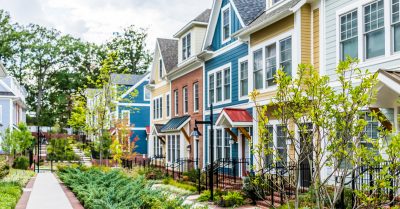 Short-term rental arrangements continue to plague community associations, with owners and powerful lobbying groups for companies like Airbnb constantly devising new tactics for avoiding restrictions.
Short-term rental arrangements continue to plague community associations, with owners and powerful lobbying groups for companies like Airbnb constantly devising new tactics for avoiding restrictions.
“With Airbnb and those platforms becoming such a huge percentage of rentals,” says Jennifer Horan, a shareholder in the Naples, Fla., office of Becker & Poliakoff, “we’re going to see a lot of creative arguments.”
The good news is that courts are providing a bulwark against such arguments in some cases. That’s what happened in a recent case out of Michigan where the owners asserted a novel theory for why their short-term rental activities didn’t violate the association’s residential use restriction. (Cherry Home Ass’n v. Barker, Leelanau Cty., Mich. Aug. 26, 2020).
The court’s ruling not only rejected the owners’ defense, it also provides some hope to associations that haven’t been able to amend their documents to deal with the onset of short-term rentals.
What’s ‘Residential Use’?
The case involved a community of more than 200 single-family homes. The association sued several owners who had engaged in extensive short-term renting through Airbnb, VRBO, and other online platforms on a daily basis for several years, according to the association’s attorney, Kevin Hirzel of Hirzel Law, PLC.
The association’s declarations limited the property to residential use, and the owners were cited for violating the restriction (the declarations didn’t include commercial use or rental restrictions). “The board took the usual steps of trying to resolve the dispute out of court first, but it came to a head, and they took the next step to preserve the residential nature of their community,” Hirzel says. That meant pursuing an injunction.
In court, the owners claimed that they couldn’t have violated the residential use restriction because they never turned a profit from their rentals. The court wasn’t persuaded, finding that earning a profit wasn’t the test for whether a use is residential. “As the judge said, just because you’re a bad business person doesn’t mean the use isn’t commercial.”
Moreover, taxes and tax returns can be manipulated. “Any smart business person can make a business look like it’s not making a profit,” Horan says.
To read full article, click here.
 Short-term rental arrangements continue to plague community associations, with owners and powerful lobbying groups for companies like Airbnb constantly devising new tactics for avoiding restrictions.
Short-term rental arrangements continue to plague community associations, with owners and powerful lobbying groups for companies like Airbnb constantly devising new tactics for avoiding restrictions.